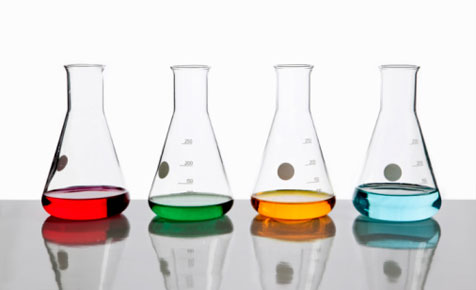Science & Technology Current Affairs
Three British Scientists Won Brain Prize
- Professors Tim Bliss, Graham Gollingridge and Richard Morris are the trio of British researchers who has received the Brain Prize, one of the world’s most coveted science prizes on March 1, 2016 for work that uncovered the foundation of memory.
- Each member of the trio made-groundbreaking advances shedding light on the way nerve connections, or synapses in the hippocampus, a brain region vital to memory arc strengthened by repeated stimulation.
- The process, called Long-Term Potentiation (LTP), persists throughout life and forms the basis of our ability to team and remember, it also underpins the brain’s inherent ‘plasticity’, which is its ability to re-organize itself in response to experience.
- They are the first UK scientists who share this coveted prize, regarded as the ‘Nobel’ of neuroscience. They will split the substantial prize of € 1 million equally. This prizp is founded in 2011 by the Lundbeck Foundation of Denmark.
East Coast Set to get Sixth Doppler Radar
- As on February 29, 2016, a new doppler radar to boost the weather forecasting system in the cycloneprone eastern coast will be commissioned in Gopalpur in Odisha in the month of March, 2016. It will be the sixth such radar-on the country’s East coast.
- Doppler radar is an observational tool for monitoring and predicting severe weather events such as thunder storms, hailstorms, cyclones and tornados within a radius of 300 km. It not only gives information about precipitation but also about wind velocity.
- Gopalpur had faced the severe cyclonic storm Phailin in October, 2013. The India Meteorological Department (IMD) had in November, 2015 installed a doppler radar in Paradip, another coastal district in Odisha which was ravaged by a super cyclone in 1999.
India Remained World’s Largest Arms Importer
- As on February 22, 2016, India continues to remain the world’s largest arms importer, accounting for 14% of the global imports in the 2011-2015 timeframe, in yet another indicator of the country’s enduring failure to build a strong domestic defence-industrial base.
- India’s arms imports remfcin three times greater than those of its rivals China and Pakistan. Its biggest suppliers are Russia, the USA, Israel and France.
- After India, China ranks second in the global arms import list with 4.7%, followed by Australia (3.6%), Pakistan (3.3%), Vietnam (2.9%) and South Korea (2.6%).
- The latest data on international arms transfers released by a global think-tank, Stockholm International Peace Research Institute (SIPRI).
Google’s Internet Balloon did Test Flight in Sri Lanka
- Google balloon, part of the company’s high-speed internet service known as Project Loon, did its maiden test flight in Sri Lankan on February 18, 2016. Google has said the balloons will have a lifespan of about 180 days, but can be recycled.
- The first of three Google balloons entered Sri Lankan air space on February 15, 2016 after being launched from South America. The launch is part of a planned joint venture between the US internet giant and Colombo to deliver high-speed internet access powered by helium-filled balloons.
- The government announced earlier in February, 2016 that it would take a 25% stake in the joint venture with Google. Sri Lanka is not investing any capital, but will take the stake in return for allocating spectrum for the project.
- Less than one quarter of Sri Lanka’s more than 20 million-strong population has regular access to the internet. Sri Lanka, the first country in South Asia to introduce mobile phones in 1989, was also the first in the region to unveil a 4G network two years ago.
Paper Waste Tamed into Gaseous Substance for the First Time
- As on February 8, 2016, the scientists from National University of Singapore have effectively transformed paper vyaste into green nontoxic cellulose aerogel. Their fabrication process used 70% less energy and released fewer polluting emissions into the air and water.
- The fabrication process also used less dioxins in the chlorine bleaching process. The process of converting paper waste into non-toxic material took only three days. Aerogel’s capacity to absorb oil is four times higher than commercial sorbents available in the market.
- Green Aerogels are ultra-light, non-toxic, extremely strong, flexible and water repellent made by converting paper waste. The process is simple, cost-effective and fast. Aerogels are ideal for applications such as oil spill cleaning, heat insulation, and packaging and can also be used as coating materials for dnig delivery.





You have got interesting content here. Your website is awesome.